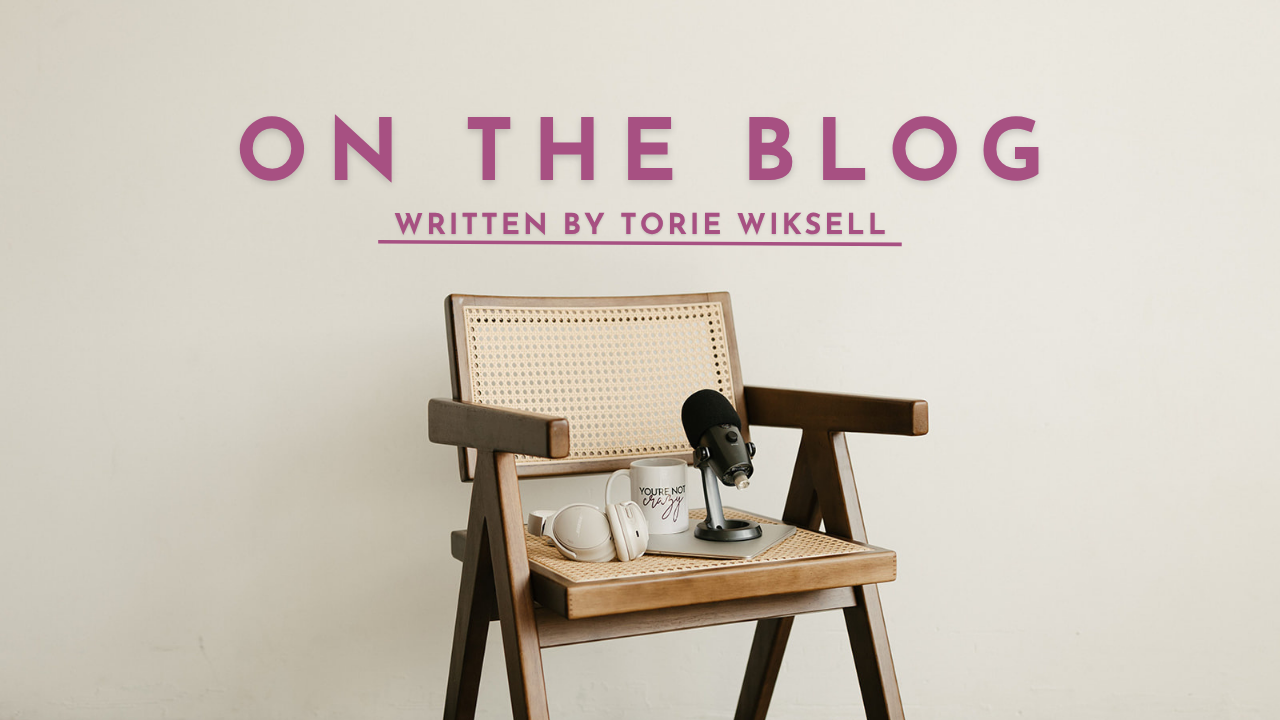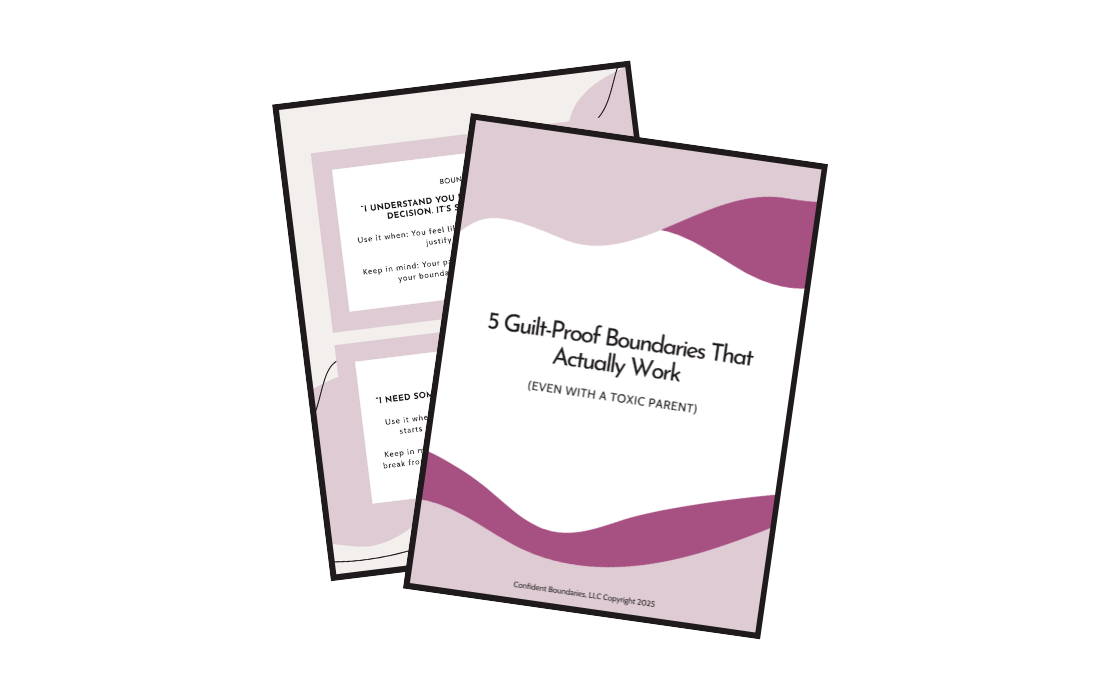
Breaking the Cycle: Navigating Motherhood After Growing Up with a Narcissistic Mother
Motherhood is hard.
Motherhood after growing up with a narcissistic or emotionally immature parent?
That’s a whole different kind of hard.
It’s not just the sleepless nights.
It’s realizing how much of your own childhood was stolen from you—right as you’re trying to show up differently for your own child.
It's realizing how hard it would be to treat your own child so callously.
It's realizing that you gave your parents more credit than they deserve.
If you grew up in a dysfunctional family—especially with a mother who made everything about her—becoming a parent can crack open pain you didn’t even know was still there.
And healing from toxic parenting while you’re parenting yourself?
That’s a tender, messy, powerful kind of work.
When Motherhood Shines a Light on What You Survived
Growing up, my emotions weren’t allowed.
My mom’s moods were the main event.
Her image, her needs, her chaos—they always came first.
I was expected to adapt, to be the fixer, to never make things harder for her than they already were.
I’ll never forget one moment from my teenage years.
She casually dropped into conversation that she might be moving to Indonesia. No context. No timeline. No conversation. Just… “I think I'm going to go teach in Indonesia.”
I tried to clarify—“You mean after we’re in college, right?”
She replied, “No. Now.”
That moment wrecked me. It was pretty traumatic.
I had already taken on the emotional responsibility of caring for my younger sister and myself (that was my reality going back as far as I can remember). And I just spiraled thinking about what that would mean for us...I was searching my brain for how I could possibly "fix" this.
I panicked because things were already awful and being physically abandoned would make them so much worse.
Years later, I tried to bring it up—hoping to get some context, an apology, honestly anything that would make that memory less painful and traumatic.
I shared that it was really upsetting and I wanted to understand.
Her response? She calmly looked at me and nonchalantly told me that she said it because she wanted my dad to tell her to stay. They were separated at the time and I suppose in her mind, telling me this would make its way back to my dad and then he would sweep in and demand they get back together.
It was childish. It was selfish. And, her response all those years later is just one jarring example of how unaffected she was about the emotional pain she caused me. Not only did she not regret it- she felt that it was justified.
What I needed was comfort.
What I got was an emotional slap in the face.
Accepting the Truth (Even When It Hurts)
One of the hardest things about setting boundaries with a toxic parent is finally accepting who they are—and letting go of who you wish they could be.
I spent so long hoping for a shift. A wake-up call. A moment of accountability.
That interaction with my mom all those years later was a huge wake-up call- not for her, but for me.
Breaking the Pattern in Real Time
Parenting after growing up with a narcissistic mother is disorienting.
Not because it’s hard to love my daughter (it's not- she's the greatest).
It's disorienting because I never knew what it felt like to be in a safe, attuned parent-child relationship.
I don’t have a map. I'm quite literally trying to figure it out as I go. Am I perfect? Absolutely not. But I do know that I am an emotionally safe person for her to be around and she's allowed to be a child who is not responsible for managing my emotions.
Watching her feel safe to express her emotions has been healing.
It’s the kind of healing that doesn’t come from insight alone—it comes from showing up differently, moment by moment, and watching the pattern break in real time.
Letting Go of the Fantasy
Letting go of the hope that your narcissistic or emotionally immature parent will change doesn’t mean you’re bitter.
It means you’re grounded.
It means you’ve stopped outsourcing your healing to someone who’s never been capable of giving you what you needed.
It means you've recognized that it shouldn't take begging, pleading, and over-explaining yourself for your parent to have empathy for you and treat you with respect.
You can still love your parent.
You can even have contact.
But when you stop waiting for them to become someone else?
That’s when the healing can truly happen.
This Is Hard Work—and You’re Not Alone
Watching people post Mother’s Day tributes while you’re still unpacking your childhood trauma? Brutal.
Navigating triggers while parenting your own child with care and patience your parent never gave you? Exhausting.
Feeling grief and rage and love all at once? Confusing as hell.
But you’re not alone.
And your pain is real—even if your toxic parent has never acknowledged it.
Motherhood is a portal for healing.
It’s also a minefield for grief.
Multiple things can be true at the same time.
You can feel love for your child and resentment for your parent.
You can be angry and grateful.
You can feel heartbreak and joy in the same breath.
And you’re still doing it.
You’re breaking the cycle.
You’re showing up.
You’re healing—not just for them, but for you.
Let’s Keep Breaking the Cycle—Together
You don’t have to figure this out alone.
Inside the Confident Boundaries Membership, we talk about all of it:
-
The guilt
-
The grief
-
The self-doubt
- The pull between maintaining a relationship and choosing yourself
You’ll find tools, workshops, support, and a community of cycle breakers who get it.
Because setting boundaries with parents, especially narcissistic or emotionally immature ones, is hard.
Because dealing with toxic parents while raising emotionally healthy kids is complicated.
And because you deserve a space to be heard, too.
Final Words: You’re Not Crazy. You’re Healing.
You’re not too much.
You’re not selfish.
You’re not the problem.
You’re someone who grew up in a dysfunctional family.
And now, you’re choosing to do it differently.
I’m so proud of you for doing this work.
For showing up.
For breaking the cycle.
You’re not alone in this.
You’re Not Crazy.
But you might have been gaslit by your parents.
Learn how to recognize the signs—and start rebuilding trust in yourself.
I hate SPAM. I will never sell your information, for any reason.



